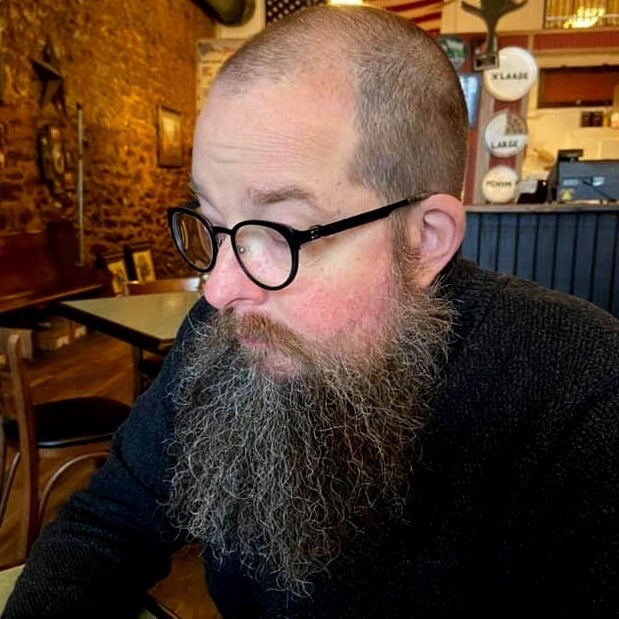I was having this conversation with my daughter and thought it was an interesting topic.
If an EMP or solar flare took out everything electronic in the whole world (permanently), how long do you think it would take for you to die, given your current location and circumstances.
I believe my daughter thinks we would live a lot longer than I do, but she is thinking about how long she can live without the internet while I am thinking the world will quickly descend into anarchy.
With no traditional forms of transport, so supplies would dry up, limited resources, health etc, law and order would be a challenge as things become more desperate.
I think I would live for about 3 months. I would try to get the family somewhere safe and remote and come back later, but I think most people would have the same idea.
I think the immediate deaths would all be from people who need electricity to run medical devices.
Followed shortly by people who require refrigerated medication.
Followed by elderly who die from exposure to extreme, unconditioned temperatures.
and that would be in the first, oh, say… week or two.
Then, with fridges full of rotted food, your first major death wave will occur as masses of people lose their absolute goddamn minds in panic and fear and start food riots/try to rob from others/raid big industrial farms/neighborhood gardens/etc, which leads to mass deaths from starvation, exposure, exertion, desperation, and gunshot.
Which will even out after about a week or two.
Then you settle in for the slow burn. 3 months out you’ll have another, comparatively small wave of deaths from people who run out of non-refridgeration requiring medications.
Then another slow burn until manufactured canned goods run out in stores and scavanged homes until a wave of starvation.
All in all, I’d say you’d probably be over the bulk of the mass deaths after 6 months, and with a significantly reduced population… Which will be to the benefit of the survivors, since less people per mile will make farming/hunting easier, and life safer… because while raiders/thieves will always be a overarching concern and safety issue, at this point, most of the desperation should have passed along with most of the desperate.
There will also be, for at least a generation, possibly two, the lingering unspoken understanding that more people than anyone would ever care to count only survived the famines and fall by eating the long pig.
Sorry, what’s the long pig? Other humans?
deleted by creator
You forgot water in your scenario.
To be fair most people in a first world country don’t need to think about water since it’s just “there”, all the time.
But as soon as the electricity goes out the water supply goes out too.
No water supply means no water to drink, with no water the human body die within 3 days, so people will start to rely on any dirty water they can find.
About dirty water, no water also means no WC. I repeat: no WC so no evacuation of feces and urine. Within a few day a big city swill be covered with human excrement. Mixed with no clean water access it means that deadly waterborne diseases will spread extremely quickly.
I wonder about the population using non-refrigerated but still vital medication being “comparatively small.” There are countless people who would no longer be getting things they need to live, and only a very small percentage of those folks would have the ability to grow a plant or something and refine themselves a substitute of some kind. I am really curious how those numbers would line up.
Username doesn’t check out. I would watch that movie.
Yep. I’d have about a month and a half of insulin to use, since it lasts that long out of refrigeration. It would take a while to actually kill me probably, but yeah that would be what gets me I think.
So basically Walking Dead without zombies.
Even in TWD the bigger danger was from the living.
My post apocalypse strategy - and the only way to avoid prolonged suffering - is suicide on day 1.
Turns out that’s not a good dinner party answer.
You got it right. If you’re already in a hospital you’re screwed. Anyone on a ventilator etc. is dead in hours.Then there’s people who need special meds that require refrigeration. They’re dead in days. Depending on the season, many more are dead in weeks. Food would be an issue but there are lots of shelf stable/canned goods that could last for a bit. Scarcity would be the bigger concern.
The dead bodies themselves could also be an issue at scale.
The crazier issue in my mind are all the industrial plants, nuclear power plants, chemical processing facilities…
In any major catastrophe they are abandoned and likely the meltdown and other issues could render whole areas uninhabitable. Might be manageable in certain power loss scenarios… but anything major and sudden like if you’re country suffered a nuclear attack or a major natural catastrophe and you survived I’d stay away from nuclear plants or chemical processing facilities. Potable water will be hard enough to come by…
In any major catastrophe they are abandoned and likely the meltdown and other issues could render whole areas uninhabitable. Might be manageable in certain power loss scenarios… but anything major and sudden like if you’re country suffered a nuclear attack or a major natural catastrophe and you survived I’d stay away from nuclear plants or chemical processing facilities.
this isn’t chernobyl anymore, we have safe nuclear plants that have excellent emergecy shutdowns (the control rods are held up by electromagnets, and in a power loss they would instantly fall down, stopping the reactor)
with chemical companies, the idea is the same, but since they’re handled by private corporations i wouldnt trust them that much with safety shut-offs in case of power loss. at most they’ll have a backup battery and a diesel generator, which in a solar flare EMP will get destroyed too
Bravo
About six weeks.
After my medications run out, then about one or two weeks and I die. Period.
About as long as it takes to fall into a diabetic coma. I’ve got my express ticket out. The rest of y’all gotta ride out the storm with the other plebs with functioning pancreases.
Jokes on you there’s a water tower near my house
There is a book that describes exactly that: Ashes, Ashes by Barjavel.
It’s a classic of French science-fiction literature and I recommended everyone to read.
It was written in 1943, it describes a parisian dystopian society in 2050 where all the electricity suddenly stop overnight. Even thought the book is 80 years old it is surprisingly accurate in some aspect.
For something more modern there is also the French mini series: https://youtu.be/VHCeqvQBNIM?si=RvjrgWHh2BNwFqT-
The world collapsed overnight and we are following few survivors. The second episode in the gas station gave me goosebumps.
The videos with the full episodes are available on youtube but region locked to France. I don’t know how to make it available for everyone.
https://youtube.com/playlist?list=PLo4Qwa4Nhi1m1v4aernDm1agaSqWuoBDS&si=9h9UMA-Bh_QTe2Uq
deleted by creator
it would depend on luck for the first few days
I hate when people try to brag that they’d easily survive the apocalypse cause they’ve prepped, or hoarded, or trained, or whatever. Like bitch if you’re in the first city to be bombed or patient zero, you dead.
When the pandemic shut a lot of the world down for a bit, I turned into Snake Plisskin from “Escape from LA” like some of apocalyptic Cinderella. Didn’t everyone? /s
Army-of-one renegade lone-wolf badass-hero natural-confidence-leader fiction was a cultural mistake.
deleted by creator
Perhaps I worded it poorly. I quoted you qualifying your success with the necessity for luck. I was applauding the affirmation that even with plenty of skills and preparedness, some things are out of our hands.
No doubt there would be people that had no business surviving but make it on pure luck and the goodwill of others. Though luck favors the prepared.
deleted by creator
Please tell me you send your family pictures of the broadway lights, and they send you homemade wine.
deleted by creator
Yes, that is to be expected from the Us americans. They would kill each other pretty soon.
I thought it was interesting that this poster started with weapons and protection, when in my mind the first thing to do is find community of people to work together on mutual survival.
However long it would take me to find a tank of nitrogen to strap to my face for happy sleep time.
At least long enough to build my own hand-crank generator. Then the raiders would kill me and take it.
:(
Disguise it as a sausage grinter?
Cannibals would kill me and grind me in it
:(
Then they’ll learn that you have really good taste.
Hard to say.
The biggest challenge would be to get out of the city and make the trip to my family’s farm safely. It would take about a week on foot/bikes using less known roads with all the supplies/weapons that would be crucial.
If I could get to the farm, rest would be fairly easy. I can farm, fish and and hunt. Heating works with wood. Fresh water is not a problem, nor is refrigeration with an ice cellar. My family has an old mill that we could restore to get flour and I think I could retrofit it to produce hydroelectricity in a year or so.
I’d trade access to electricity to get horses and other farm animals.
Almost every neighbour is related to me, so forming a defensive alliance should be possible.
I have the gear and the knowhow to make things work, it’s the not-getting-killed part at the start that’s hard.
The trouble isn’t that you can’t do all that. It’s how many other people have that same idea. Rural areas will be overrun by people who think getting out of the cities is the best idea – not that they’re wrong – but it will run supplies low outside cities too, and home gardens and the local deer population can only take so much pressure. That’s not even to mention the road traffic. If cities can’t handle rush hour, 2 lanes will certainly be gridlocked as everyone looks for the next road not taken. The locals would not take kindly to such an influx either.
The best strategy in my mind would be to stockpile food and other necessities wherever you are now and prepare for a long wait, hoping power gets restored. It would be horrible and dangerous no matter where.
3 months is when my insulin runs out. I doubt I’d make it that long in the USA.
Like I said, the start would be the hardest part. Cars or any other motor vehicles would be out of the question.
f this scenario would happen during the winter, it would effectively block all the lesser known forest roads for vehicle use. Doing the trip with skis would easily halve my travel time, even with the supply sled and heavy backpacks. 30-50km per day would be easy, when one wouldn’t have to go around all the lakes and rivers. We don’t get much daylight here in the far north so travelling in the cover of darkness would be ideal. I can find my way in dark forests with ease.
In the summer, the trip would be much more problematic. My country has countless number of old, unmarked roads and forest paths that are usually suitable for mountain bikes. This would be my first option. The second would be crossing the forests by foot which would be very safe, but it would take time.
My relatives would take care of the farm until I would arrive, of that I am certain - and they are very capable of doing so. My family has stuck around those parts for hundreds of years and we aim to keep it that way in any scenario ;)
And then there’s me. I either get some of your food, or I die. The hunger is growing in me like crack withdrawal. I also have survival skills and I’ve used every tool you can imagine and I’m really good at sneaking around.
I’ve probably got a gun by now.
I’m just gonna come and take ten pound of your corn. That’s all I need, then I’ll be on my way.
What do you say? Are you gonna give me some corn?
Depends.
Maybe you’re willing to chop some wood or help out in some other way in exchange for the food. Win-win for all.
Or then one of my children on watch duty shoots you with a .308 when I subtly signal them that the negotiations have stalled or you pull your gun out.
Maybe we both die. Those would be very uncertain times.
I don’t know how well I would do even if I escaped to my inlaws farm. It is pretty low tech but they are depending on city water which involves pumps and a moped to even get to the farm from their house still requires a battery.
If given enough notice to store water and fill 3 good coolers with ice, longer than 2 weeks - we lost power for 2 weeks with a hurricane once and had an electric well pump so no water either. Had set up a system with one cooler allowed to be opened, the others not often. By 2 weeks the water that we’d filled the tub with (for washing not drinking - water with a little bit of bleach) was getting questionable.
Like you, I think the biggest issue would be people.
Way longer than your average person but I’d start running out of supplies after few months too. I have food stocked up for few months, 90 litres of drinking water and a water filter, 120 litres of diesel plus what I have in the tank, enough fuel to run alchohol stove for few months aswell and I have a fireplace to keep myself warm basically indefinitely.
It’s kind of scary to think that even me whose somewhat of a prepper would run out of supplies quite quick. What does that mean for the average person who doesn’t even have a jug of water stored up.
Also, this is the kind of discussion that would fit well on [email protected]
I’ve always wondered. Do you folks just chow on nothing but canned food ands military reasons for a few months straight every couple years when things expire? Or just donate?
Don’t get me wrong. I think it’s good to have emergency supplies. But things expire…
They could just eat them from time to time and replace them with new ones gradually.
I mostly stock up on items I’m using anyways such as rice, beans, noodles, sugar, coffee, crackers, honey, peanut butter etc. and I’m constantly using the oldest packages from my stock and replacing them with fresh ones.
Expired can food doesn’t go bad. Unless the can is budging it’s fine
There’s a fantastic book series based on exactly this: The Change Series. This is a double storyline with the Emberverse series in which the present time beginning in March 1998 loses electricity and “most forms of high-energy-density technology” due to “The Change”, which occurs at 6:15 p.m. Pacific Standard Time, March 17, 1998.
The companion series, which was written first, is the Nantucket Series, in which the island of Nantucket is transported back in time to 1250 BC due to something called “The Event”, the same Event that caused The Change. But— they got to keep all their physics intact.
If property rights are still enforced in the turmoil probably indefinitely. Doesn’t mean I’d enjoy it, though.
I come from a place where survival agriculture was the norm well into the 1980s. Would have to start having cows and pigs again, need to work out a salting station, which we haven’t had for a few decades. I remember soap making was a mess. We got rid of our wood-fueled kitchen at some point, so that’s a problem until society settles back in enough to start selling those again. We’d probably have to go back to setting up a corner for a fireplace in the meantime. That’s before my time but it should be possible.
Medication would run out so probably about a month.
There’s a book I read about this. I don’t remember the title, but it was written by some US senator or house rep, probably had a ghostwriter. It was about that, some enemy of the US, maybe it was China or Russia, detonated a bunch of nukes high in the atmosphere, causing the US’s electronics to be fried.
Assuming they did their research, the book had people survive for years, but definitely addressed how hard it would be. There was looting & rioting, the family had to eat their dog eventually, and there was a massive change in the importance of trust & community. I think it was like 3 years later that the reconstruction reached the small town, and it ended along the lines of “and then there was more work.”
It was a decent read, 7/10.
This question reminded me of the Dr Stone anime. The premise is that a wave turns everyone into marble, several thousands years later a young scientist is unfrozen and uses science to restore society to its former state.
Also, I wonder what the effects of long term exposure to EMP would be to life on earth. Since most neurological systems use electromagnetic waves maybe they are impacted?
Another interesting question would be if there would be a way to work around the EMP. For example, would a Faraday cage work to allow electronics to work inside it? Or maybe electronics are improved to work under the effect of EMP? Like how the CPUs have bit correction algorithms because of random bit flips that occur due to solar flares.
Last but not least, in such a situation my plan would be to go as far away as possible, since there will be food shortages, being in an area where you can forage for food or hunt animals would be a priority. Then, I would probably die eating something poisonous. If I survive long enough to set up a farm, I would probably survive the next 10 years or so until I die of old age at 35 the new average life expectancy.
Absolutely love Dr. Stone, and love the comparison too















